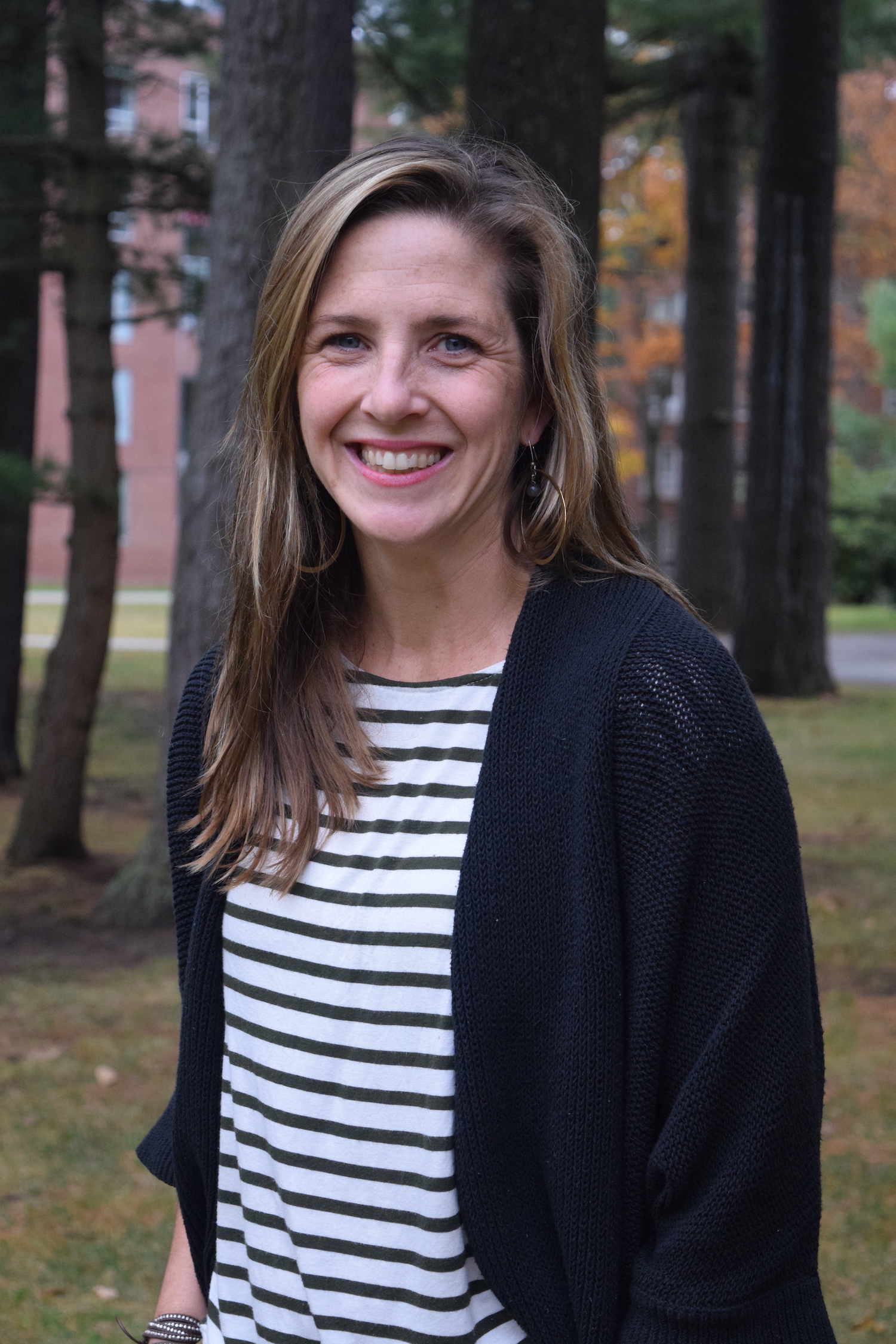Meet Kate Nicholson, new assistant director of student wellness programs
November 1, 2019
In an often high-stress environment like Bowdoin, self-care is encouraged, whether it’s in the form of writing, drawing or taking a warm shower.
“Stress might be [a] unifying factor, but [it’s] not something I encourage us to over-identify with or let run our lives,” said Kate Nicholson, Bowdoin’s new assistant director of Student Wellness. “Self-care in many forms is truly essential for managing stress and actually enjoying and thriving in your college years.”
Nicholson has taught weekly yoga classes at Bowdoin for 12 years, but she started working full-time at Bowdoin only two weeks ago. Director of Counseling Services and Wellness Programs Bernie Hershberger explained that Nicholson was selected from a pool of well-qualified applicants, emerging as the first choice due to her extensive experience in wellness practice and her excellent reputation as a yoga teacher and massage therapist.
 Isabel Alexander
Isabel Alexander“Kate is energetic, vibrant, open, reflective and very hard working. She is eminently able to organize and get things done. At the same time, she is a very good listener and can help students explore what they might need to undertake to feel healthier and happier,” Hershberger wrote in an email to the Orient.
Nicholson, who will continue teaching Vinyasa Yoga on Friday mornings from 9:30 to 10:30 a.m., explains that practicing yoga helped her find a sense of balance and self.
“I was so inspired by what evolved in my yoga practice—how it stabilized me emotionally, how safe it felt to show up especially in times of stress and also how fun it became to be in my body in a new way the more I practiced,” Nicholson said. “I can read all the books on mindfulness, but unless I practice it in my own mind, my own breath, my daily habits, albeit imperfectly, then it’s just another theory and content filling up my head space.”
After being introduced to yoga, Nicholson went on to study a variety of wellness practices, including massage, reiki, shiatsu, Ayurveda, craniosacral therapy, essential oils and meditation, which helped her gain an appreciation for an integrative approach to medicine.
“I want to be clear that wellness is a much broader concept than just yoga,” Nicholson said. “Wellness encompasses mental, physical, emotional, social and spiritual health.”
In addition to teaching yoga classes, Nicholson hopes to develop various programs in her new position, including a half-day, on campus “retreat” in the spring for students who are interested in delving a little deeper into the practice of meditation and mindfulness. She also hopes to collaborate with the Office of Sustainability, Bowdoin Athletics and the Sexuality, Women, and Gender Center to offer workshops and occasional student trips to off-campus wellness events in Portland.
“I am in the process of reaching out to various student groups to explore ways to collaborate and create new ideas that are tailored to that group’s focus, needs or wants,” Nicholson said.
Nicholson is also assessing the primary needs of the Bowdoin community to figure out how to make the wellness programs more accessible to students of all backgrounds and identities. She and Hershberger will be the ambassadors for a “Wellness Think Tank,” which will collect suggestions about best to provide wellness services to students.
For Nicholson, ultimately, self-care is just the start to a more holistic approach to wellness.
“I think true healing and well-being is best when we expand our sense of self and relationship to our bodies to include a wider, more sophisticated lens of embodied wisdom, emotional literacy and modern science,” Nicholson said.

Comments
Before submitting a comment, please review our comment policy. Some key points from the policy: